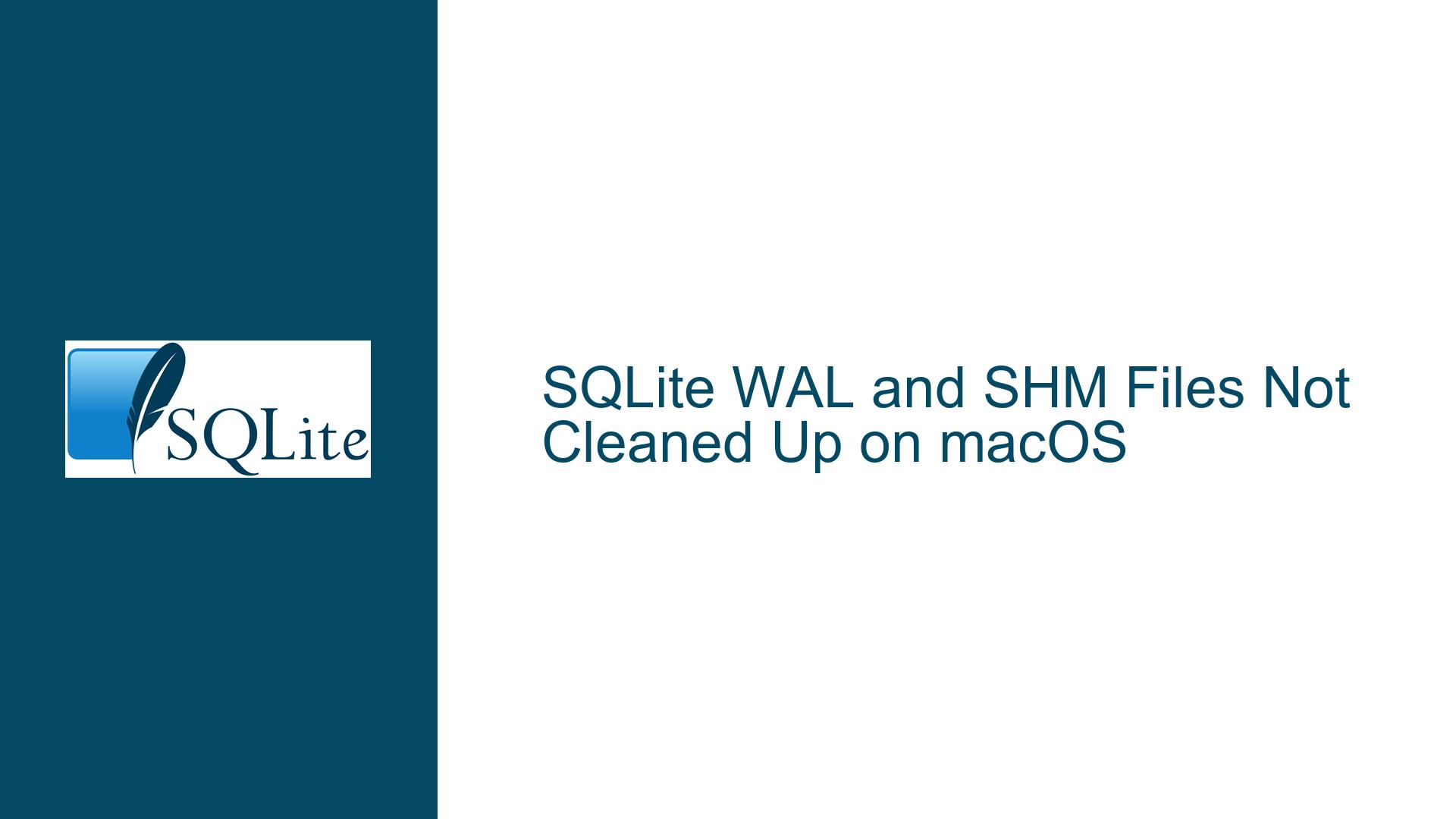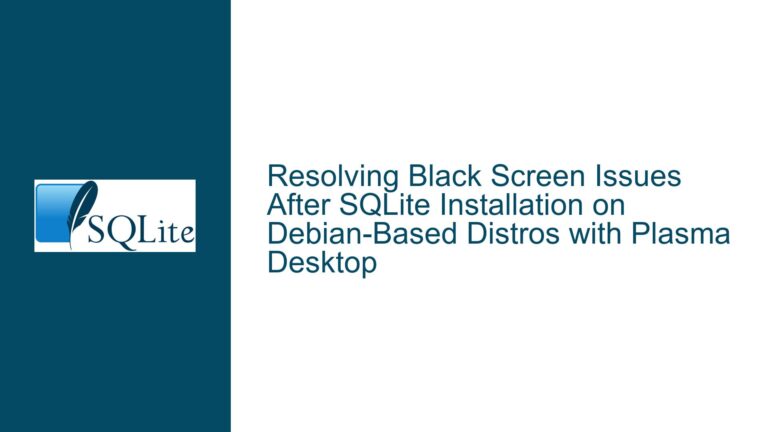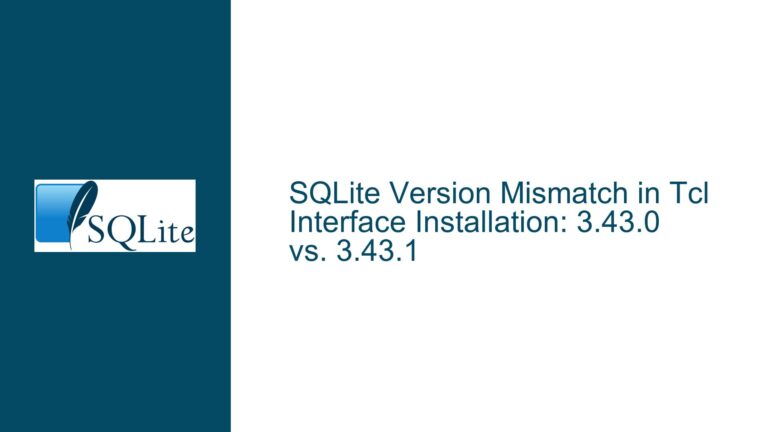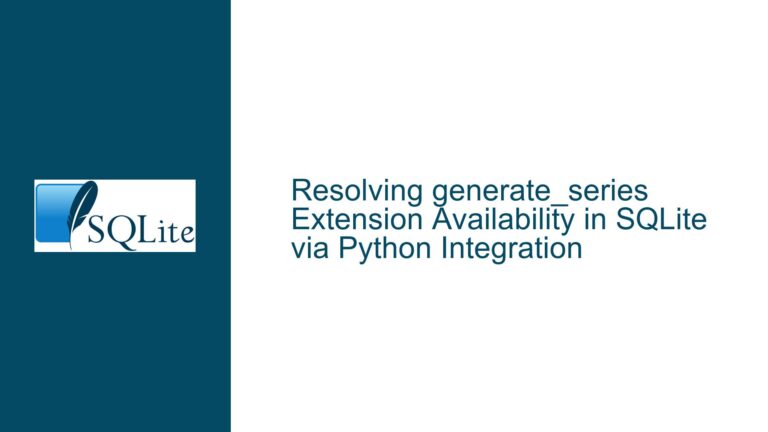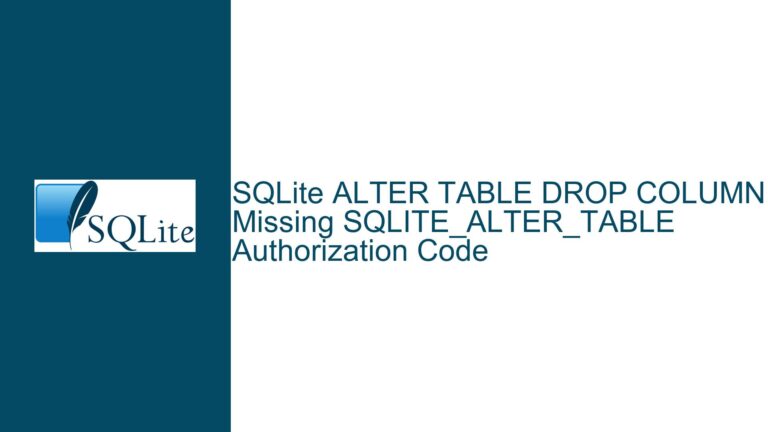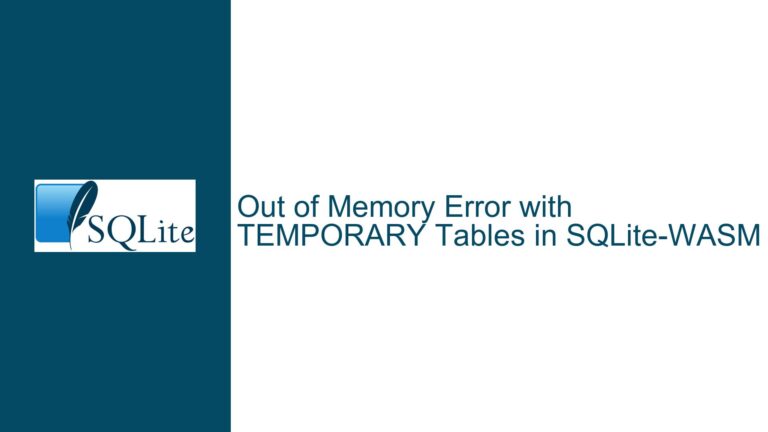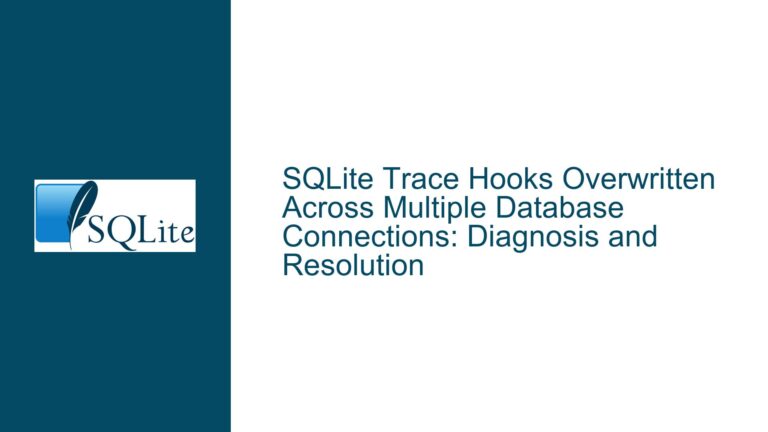SQLite WAL and SHM Files Not Cleaned Up on macOS
SQLite WAL and SHM Files Persisting After Database Closure
When using SQLite in Write-Ahead Logging (WAL) mode on macOS, it is expected that the associated -wal (Write-Ahead Log) and -shm (Shared Memory) files are automatically cleaned up upon the closure of the last database connection. However, users have reported that these files persist even after the SQLite3 CLI or application exits. This issue is particularly prevalent with the version of SQLite bundled with macOS, while newer versions or custom builds of SQLite do not exhibit this behavior.
The persistence of WAL and SHM files can lead to unnecessary disk usage and potential confusion, especially in environments where databases are frequently created and destroyed. The issue is not limited to the SQLite3 CLI but also affects applications that rely on the built-in SQLite library provided by macOS. This behavior suggests a discrepancy between the expected and actual handling of WAL and SHM files during database closure.
Misconfigured SQLITE_DBCONFIG_NO_CKPT_ON_CLOSE Flag and Connection Closure Order
One potential cause of this issue is the misconfiguration of the SQLITE_DBCONFIG_NO_CKPT_ON_CLOSE flag. This flag, when enabled, prevents SQLite from performing a checkpoint and cleaning up the WAL and SHM files upon database closure. However, in the reported case, the flag is explicitly set to off, ruling out this configuration as the root cause.
Another possible cause is the order in which database connections are closed. SQLite’s internal mechanism for cleaning up WAL and SHM files appears to be sensitive to the sequence of connection closures. If connections are closed in the reverse order of their creation (i.e., the last connection opened is the first to be closed), SQLite successfully deletes the WAL and SHM files. Conversely, if connections are closed in the same order they were opened, the cleanup process fails, leaving the files behind. This behavior suggests a potential bug in SQLite’s connection management logic, particularly in the macOS build.
Additionally, the issue might be related to the specific version of SQLite bundled with macOS. Users have reported that the problem does not occur with newer versions of SQLite, such as 3.31.1, which handle WAL and SHM file cleanup correctly. This discrepancy points to a possible bug or modification in the macOS-provided SQLite library that affects its behavior in WAL mode.
Upgrading SQLite and Ensuring Proper Connection Closure Sequence
To address the issue of WAL and SHM files persisting after database closure, the first step is to upgrade to a newer version of SQLite. Users experiencing this problem on macOS should download and use the latest precompiled binaries from the official SQLite website. Testing with version 3.31.1 or later has shown that these versions correctly clean up WAL and SHM files upon database closure.
If upgrading SQLite is not feasible, developers should ensure that database connections are closed in the reverse order of their creation. This can be achieved by maintaining a stack-like structure for connection management, where the last connection opened is the first to be closed. Implementing this approach in application code can help mitigate the issue until a more permanent solution is available.
For applications that rely on the built-in SQLite library provided by macOS, it is recommended to explicitly check the no_ckpt_on_close flag using the .dbconfig command in the SQLite3 CLI. Although this flag was not the cause in the reported case, verifying its configuration can help rule out potential misconfigurations.
In cases where the issue persists despite these measures, developers should consider implementing a manual cleanup process for WAL and SHM files. This process can be triggered upon application exit or database closure, ensuring that any residual files are removed. However, this approach should be used with caution, as it may interfere with SQLite’s internal mechanisms and lead to data corruption if not implemented correctly.
Finally, developers should monitor the official SQLite mailing lists and GitHub repositories for updates related to this issue. Given that the problem appears to be specific to the macOS build of SQLite, it is possible that future updates or patches will address the underlying cause. In the meantime, the workarounds outlined above provide a practical solution for managing WAL and SHM file cleanup on macOS.
| Action | Description | Considerations |
|---|---|---|
| Upgrade SQLite | Download and use the latest precompiled binaries from the official SQLite website. | Ensure compatibility with existing applications and databases. |
| Reverse Connection Closure Order | Close database connections in the reverse order of their creation. | Implement a stack-like structure for connection management. |
Verify no_ckpt_on_close Flag | Use the .dbconfig command to check the flag’s status. | Ensure the flag is set to off to allow automatic cleanup. |
| Implement Manual Cleanup | Add a manual cleanup process for WAL and SHM files. | Use with caution to avoid data corruption. |
| Monitor SQLite Updates | Stay informed about updates and patches related to the issue. | Apply updates as they become available to benefit from fixes and improvements. |
By following these steps, developers can effectively manage the persistence of WAL and SHM files in SQLite on macOS, ensuring efficient disk usage and maintaining the integrity of their databases.
